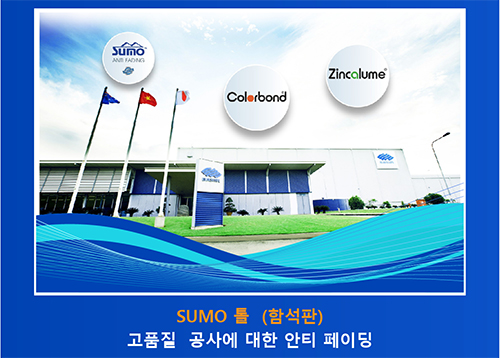

Amid the outbreak of COVID-19, many production and business activities of Vietnamese businesses have been seriously affected. Statistics from the Business Registration Office (Ministry of Planning and Investment) show that the outbreak caused over 28,000 businesses to withdraw from the market in the first two months of this year.

In particular, for real estate brokerage, according to statistics of the Vietnam Association of Realtors, there are over 300 exchanges (accounting for one-third of the market) forced to be closed.

For the service sector, tourism has also seen a series of hotels and small-scaled motels across the country temporarily suspended due to the absence of customers. For example, in Hanoi, since the discovery of the first patient positive for COVID-19 on March 6 to date, 8 major hotels have closed in an attempt not to get disease, with staffs staying at home in isolation for 14 days such as Sofitel Legend Metropole Hanoi and Daewoo. A number of travel companies have to give employees unpaid leave. The Kien Giang Department of Tourism alone estimated that in the first quarter of 2020, the tourism industry in this province has lost over VND 2,300 billion.

On the other hand, regarding education, many private pre-schools stand on the verge of bankruptcy because there is no revenue due to the absence of students. Mr. P.V.D, an owner of a private pre-school in Go Vap district, said: “Each month the fixed cost amounts to VND 250 – 300 million/month (excluding the loan repayment for investment in the school). If this situation continues for a few months, the school will go bankrupt due to default on loans.”

Especially the textile and footwear sector that accounts for a large proportion of export turnover is also facing difficulties. Although production has not yet ceased, many businesses are cutting production lines, leaving workers on rotating breaks because they cannot seek for alternative material sources outside China. Mr. Pham Xuan Hong, Chairman of Ho Chi Minh City Textile and Garment Association shared, it was reported that small businesses only had raw materials by the end of February, some have still up to March and very few have by early May 2020. Even relatively large-scaled enterprises like May 28 are also in a serious shortage of raw materials but have not yet found alternative sources of supply and the material shortages in the second quarter of 2020 is unavoidable.

Following that, many economic experts also claim that the COVID-19 is a “test” for the economy, businesses, particularly in sectors, businesses which are based on a market, a source of manufacturing materials. The more difficulties they encounter, the more depressingly those sectors and businesses need to change strategies to save themselves, change strategies to save themselves, step up restructuring, implement substantially more multilateralism, diversify and restructure markets and partners… Consequently, it is likely to limit risks, reduce the dependence on one market or several major markets. However, diversifying the export-import markets of many companies, especially with small and medium-sized ones, is not easy but we have to conduct it unless being inundated in the circumstance that there are always hidden instabilities in the world.

While the service and manufacturing sector are facing difficulties, there are still many sectors that thrive amid the outbreak because of the changes in Vietnamese consumers’ consumption habits.

Actual records from retailers and manufacturers of the above-mentioned products show that, although Covid-19 is negatively affecting many other industries, these businesses still achieved positive sales. Specifically, Saigon Co.op retailer, which owns a retail network of convenience stores, supermarkets, hypermarkets to shopping centers, said that: “After Tet, Saigon Co.op has noted people often spend money buying fresh food, dry food (instant noodles, pasta, dried noodles, sugar), hand sanitizer… Even Saigon Co.op now has to work with suppliers for commitment to stocking inventories equivalent to the recent Lunar New Year to ensure there is no shortage of goods under all circumstances.
Similarly, the retailer Emart shared that sales of dried food in Emart grew 150% in February 2020, while toilet paper increased by 200%. In the Emart’s inventory, necessary commodities are now always maintained at the highest level to ensure sufficient supply for consumers.

As for food manufacturer, Mr. Luu Huynh, Marketing Manager of MeiZan CLV Co., Ltd confirmed that MeiZan had to increase the factory capacity by 3 – 4 times to meet the demand in the market.
In VISSAN, along with increasing capacity, in recent days, VISSAN’s food processing factory has to recruit about 100 additional temporary workers to ensure timely supply of goods to the market as well as the points of sales already developed.
A representative of A An rice brand (a subsidiary of Tan Long Group) said that only in the last 2 days of the week ended 7 and 8 March, the amount of rice sold in the nationwide network of stores and online channels of the company has exceeded the Lunar New Year peak sales. Orders increased dramatically with a lot of customers ordering hundreds of kilograms of rice at a time, so the staff has to work at full capacity to deliver promptly, and 40 stores in the network open from 7am to 11pm every day.

Meanwhile, for the pharmacy chain, according to a representative of Pharmacity, since Vietnam confirmed the first case of Covid-19 to date, medical masks and hand sanitizer and antiseptic solution are always out of stock. Records from the Pharmacity network by the end of February 2020 show that these stores have supplied nearly 10.5 million masks, 150,000 bottles of hand sanitizer and over 320,000 vitamin C supplementary products of all kinds.

This growth helps Pharmacity successfully raise capital of VND 730 billion, equivalent to USD 31.8 million – the first tranche of the Series C. Thanks to the investment capital, the pharmaceutical retail chain aims to open 350 new stores in 2020 and reach 1,000 stores nationwide by 2021.
From the panoramic picture, COVID-19 seems to be a test, forcing each enterprise to pose new strategies to overcome the scenario of unstable business, to briefly recover and to develop sustainably when the epidemic ends.










Comment